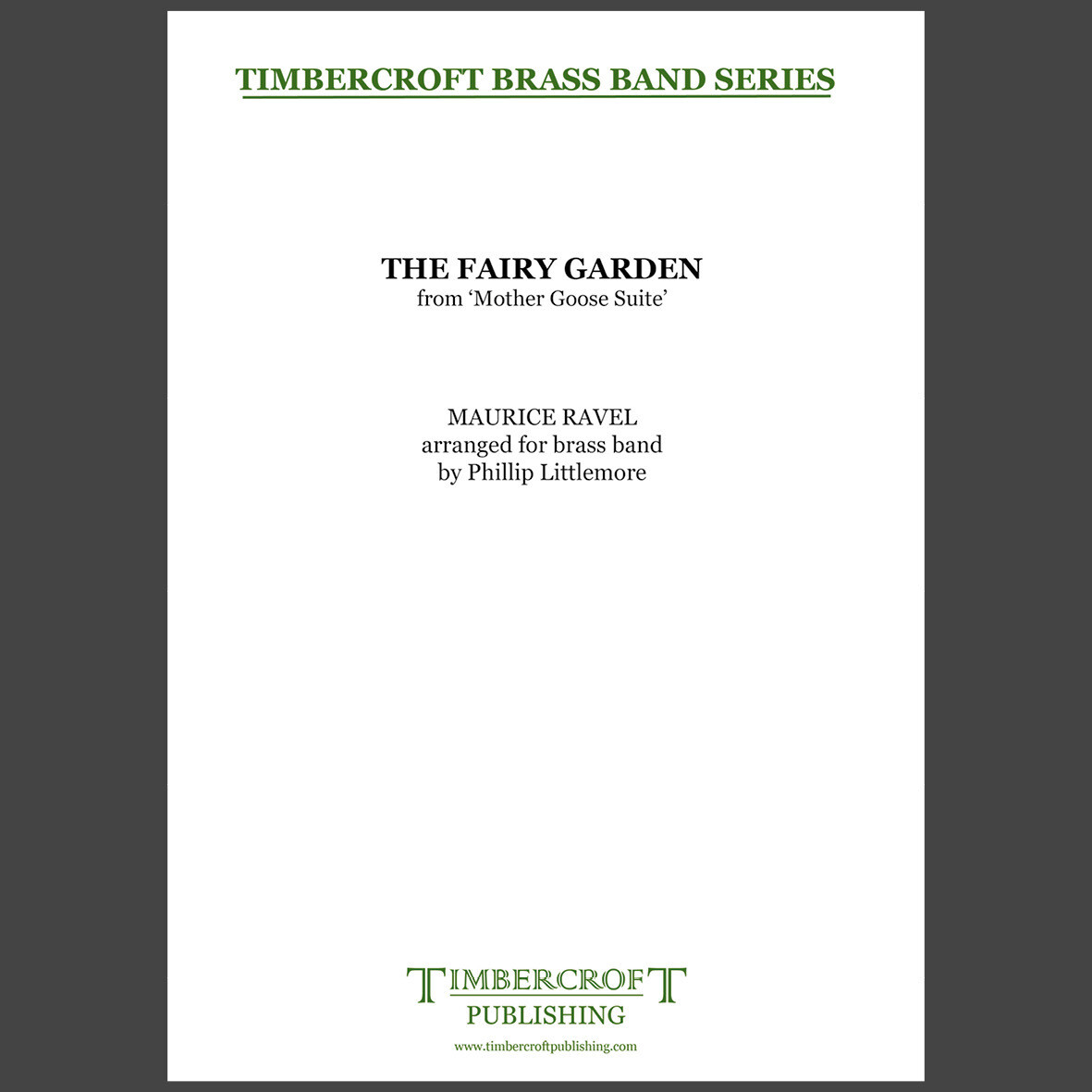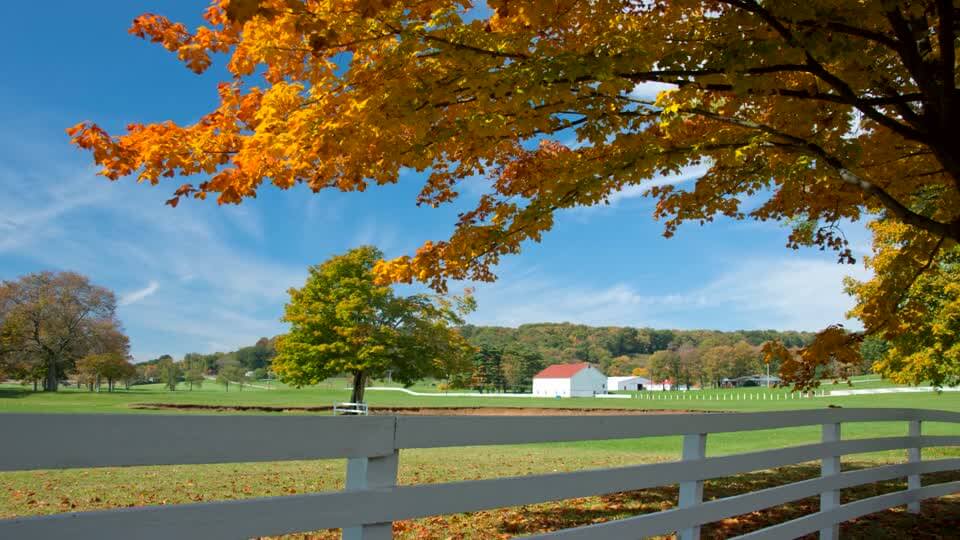Results
-
£29.95
The Land of the Long White Cloud (Score Only)
Dating from 1979, The Land of the Long White Cloud (Aotearoa) was Philip Sparke's first test-piece. It was commissioned by the New Zealand Brass Band Association for their 1980 National Championships (their centenary year) and set for the European Brass Band Championships, the same year, at the Royal Albert Hall in London. Aotearoa was the name given to New Zealand by its Polynesian settlers whose first sight of the islands was a long, flat cloud lying low over the land. The work has no specific programme although many have seen pictures of the surging ocean in the opening bars. A faster dance-like section leads to a slow, haunting solo for soprano cornet; this is taken up by the whole band before earlier material returns. The dance-like tune is, this time, given a fugal treatment and the opening bars return to close the work.Philip Sparke was born in London and studied composition, trumpet and piano at the Royal College of Music, where he gained an ARCM. It was at the College that his interest in bands arose. He played in the College wind orchestra and also formed a brass band among the students, writing several works for both ensembles.At that time, his first published works appeared - Concert Prelude (brass band) and Gaudium (wind band). A growing interest in his music led to several commissions, his first major one being this featured piece for the Centennial Brass Band Championships in New Zealand - The Land of the Long White Cloud. He has written for brass band championships in New Zealand, Switzerland, Holland, Australia and the UK, including three times for the National Finals at the Royal Albert Hall.In September 2000, he was awarded the Iles Medal of the Worshipful Company of Musicians for his services to brass bands and in 2005 Music of the Spheres won the National Band Association/William D. Revelli Memorial Band Composition Contest. In 2011, he received the BUMA International Brass Award for his contribution to brass music.His conducting and adjudicating activities have taken him to most European countries, Scandinavia, Australia, New Zealand, Japan, Taiwan, South Korea, Canada and the USA. In May 2000, he took the major step of becoming a full-time composer by founding his own publishing company, Anglo Music Press. The company is devoted to publishing his brass band, concert band, fanfare band and instrumental publications as well as recordings dedicated to his latest works.
Estimated dispatch 7-14 working days
-
 £30.00
£30.00Fairy Garden, The - Maurice Ravel arr. Phillip Littlemore
Ravel wrote his five short piano pieces entitled Ma Mere l'Oye (Mother Goose) for two young children, Mimie and Jean Godeski in 1910. The suite invites us to the enchanted world of childhood through these five atmospheric tales. The final part of Ravel's suite is a grand finale, although where Ravel got his inspiration for the fairy garden is unknown. Whatever its origin, it certainly is a delightful piece of music - slow in tempo, quiet to start, with rich harmonies and delicate solos, all leading to a tumultuous climax.Duration: 3'00"Difficulty: Suitable for all grades
Estimated dispatch 5-7 working days
-
£34.95
CHALLENGE, The (Trumpet Solo with Brass Band Set) - Eric Ball
Originally written for trumpet and piano in 1935, this solo exploits the character of the trumpet to good effect. It is a measure of the quality of Eric Ball's music that 'The Challenge' stands up today as fresh in its brass band guise as it did in its first published version.
Estimated dispatch 7-14 working days
-
£29.50
How Great Thou Art - Trad - Edward Knowles
Every year, bands up and down the country perform joint concerts with choirs around the UK & across the globe. Joint items between the two ensembles are wonderful viewing (& listening) for the audience and can work as a terrific finale. Now, with the release of this arrangement, bands and choir* can join together and perform this wonderful work. Featuring a Baroque fanfare to open and a fugue towards the end, this is a simply stunning way for band and voices to be brought together. The arrangement also features an optional cut which allows the work to be performed without a choir. However, this arrangement invites the band to sing the melody in 4 part harmony, giving a fantastic new dimension to your bands versatility. Full choir parts & a piano part (for choir rehearsal purposes) are included with this publication. This really is a fantastic item that can make the hairs on your neck rise.
In Stock: Estimated dispatch 1-3 working days
-
 £24.50
£24.50Idyll - Arthur Sullivan - Phillip Anderson
Originally composed for Cello and Piano in 1865, this simple yet effective tune has been arranged for Solo Euphonium and brass band. With easy accompaniments and a wide register for the soloist to tackle, Idyll can feature successfully in any concert program
In Stock: Estimated dispatch 1-3 working days
-
 £85.00
£85.00Concertante (Piano Solo with Brass Band - Score and Parts) - Gregson, Edward
This work was written in 1966, when I was a student at the Royal Academy of Music in London. It was the first major work to be written for this combination. The Concertante is unashamedly romantic in idiom and is cast in three movements: Prelude, Nocturne and Rondo.The Prelude is in sonata form with a contracted recapitulation. There are two main themes, the first announced after the opening flourish on piano. The second theme is lyrical in character and the interplay between these two themes forms the main focus of the movement.The pensive Nocturne opens with an introduction from the band which contains hints of the two main ideas to follow. The solo piano announces the main theme, which has a slightly 'blues' character in its flattened third and seventh notes of the scale. The band enters with the chorale theme already heard in the introduction. Eventually the first theme returns, this time from piano and band and building to a powerful climax before subsiding to a peaceful ending.The Rondo is full of energetic rhythms and changing time patterns. The main theme is 'giocoso' in character and in the first episode there is more than a hint of the tune 'Onward Christian Soldiers' in what amounts to a good humoured parody. Before the final coda there is a long piano cadenza underlying the virtuoso element of the work.The work had a number of public performances leading up to a memorable one in the Royal Albert Hall in 1989 as part of the Gala Concert that used to be held after the National Brass Band Championship in the Royal Albert Hall. That year, the 'centre band' in the massed bands concert were the GUS Band (then known for sponsorship reasons as 'Rigid Containers Group Band'!) conducted by my great friend and champion, Bramwell Tovey, with myself as the soloist.- Edward GregsonDuration: 18.00
Estimated dispatch 7-14 working days
-
 £2.31
£2.31The Huron Carol (SATB Choir, Piano & Brass Quintet) Trad. arr. Andrew Wainwright
Digital copy - please note PDFs will be emailed to you within 24 hours of purchase. Minimum order 20 copies. This magical three-verse setting for SATB Choir, Piano and Brass Quintet of the beautiful Canadian Christmas hymn The Huron Carol was commissioned by Jeff Hunt and the St Charles Singers and Millar Brass Quintet for their Christmas concert series in 2023. The original hymn is actually Canada's oldest Christmas song, also known as 'Twas in the Moon of Wintertime. Various versions of this setting are available from this website, including SATB Choir with Piano, as well as full versions for Brass Band, Concert Band, Full Orchestra and String Orchestra. All versions are set in the same key and so could be used as accompaniments to this particular version. To view a video of St Charles Singers and The Millar Brass performing the work please visit www.youtube.com/watch?v=ELk_PY72ql0 Instrumentation:SATB Choir Piano Trumpet/Piccolo Trumpet in Bb Flugelhorn in Bb Horn in F Trombone Tuba Suspended Cymbal (optional) Triangle (optional)
In Stock: Estimated dispatch 1-3 working days
-
 £27.08
£27.08Two-gether (Four Duets on Hymns & Spirituals - Soloists in C Bass Clef w/Piano)
This collection of four duets for C instrument in bass clef with piano accompaniment beautifully blends the timeless appeal of hymns and spirituals with engaging, equal-part musical interplay. Expertly arranged by Kenneth Downie, they are designed to be fun to play and listen to. The book features two pieces in an upbeat, lively style and two in a more reflective, meditative mood. These duets are ideal for concert or contest performances, church services, or simply to enjoy the shared joy of making music together. To view a demonstration video featuring David Koch containing excerpts from all of the arrangements please visit www.youtube.com/watch?v=PCvipNJAH00 Featured tunes: He Hideth My Soul Riverside Silver Trumpets The Old Rugged Cross All the arrangements come with high-quality MP3 backing tracks, recorded using the sounds of the BBC Symphony Orchestra's piano. Included in this download: Soloist Book in C (Bass Clef) Piano Accompaniment Book MP3 Backing Tracks This book is also available for soloists in Bb treble clef here. Sheet music available from: (UK) www.durhammusic.co.uk (USA) www.cimarronmusic.com
In Stock: Estimated dispatch 1-3 working days
-
 £1.93
£1.93The Huron Carol (SATB Choir & Piano)
Digital copy - please note PDFs will be emailed to you within 24 hours of purchase. Minimum order 15 copies. This magical three-verse setting for SATB Choir and Piano of the beautiful Canadian Christmas hymn The Huron Carol was commissioned by Jeff Hunt and the St Charles Singers and Millar Brass Quintet for their Christmas concert series in 2023. The original hymn is actually Canada's oldest Christmas song, also known as 'Twas in the Moon of Wintertime. Various versions of this setting are available from this website, including SATB Choir with Piano & Brass Quintet, as well as full versions for Brass Band, Concert Band, Full Orchestra and String Orchestra. All versions are set in the same key and so could be used as accompaniments to this particular version. To view a video of St Charles Singers and The Millar Brass performing the work please visit www.youtube.com/watch?v=ELk_PY72ql0
In Stock: Estimated dispatch 1-3 working days
-
 £27.08
£27.08Two-gether (Four Duets on Hymns & Spiritual for Soloists in Bb) Kenneth Downie
This collection of four duets for Bb instrument with piano accompaniment beautifully blends the timeless appeal of hymns and spirituals with engaging, equal-part musical interplay. Expertly arranged by Kenneth Downie, they are designed to be fun to play and listen to. The book features two pieces in an upbeat, lively style and two in a more reflective, meditative mood. These duets are ideal for concert or contest performances, church services, or simply to enjoy the shared joy of making music together. To view a demonstration video featuring David Koch containing excerpts from all of the arrangements please visit www.youtube.com/watch?v=PCvipNJAH00 Featured tunes: He Hideth My Soul Riverside Silver Trumpets The Old Rugged Cross All the arrangements come with high-quality MP3 backing tracks, recorded using the sounds of the BBC Symphony Orchestra's piano. Included in this download: Soloist Book in Bb Piano Accompaniment Book MP3 Backing Tracks This book is also available for soloists in C bass clef here. Sheet music available from: (UK) www.durhammusic.co.uk (USA) www.cimarronmusic.com
In Stock: Estimated dispatch 1-3 working days
